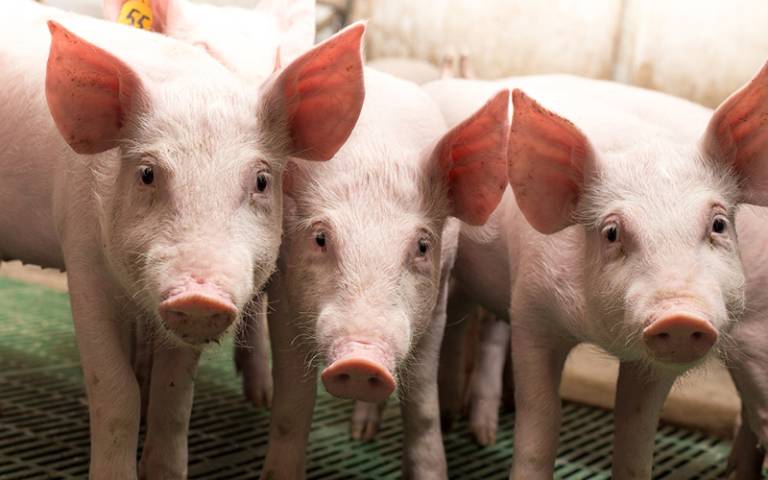In a groundbreaking development, xenotransplantation, or the transplantation of organs from one species to another, is on the verge of becoming a clinical reality. Speaking at the Annual Meeting and Scientific Sessions of the International Society for Heart and Lung Transplantation (ISHLT) in Prague, Muhammad Mohiuddin, MBBS, shared his insights on the future of organ transplantation.
Dr. Mohiuddin, a professor of surgery and program director of the University of Maryland School of Medicine’s (UMSOM) Cardiac Xenotransplantation Program, emphasized the dire need for alternative solutions to the organ shortage crisis. “Every 80 minutes, a person on the waiting list for a new heart dies worldwide,” he said. “Not everyone is going to get a heart transplant.”
In January 2022, UMSOM made history by becoming the first institution in the world to implant a genetically modified pig heart into a human patient. This remarkable feat was repeated in 2023 with a second patient. These breakthroughs were made possible by advances in cloning, gene editing, and infection control, and were performed under the US FDA’s expanded access program.
Dr. Mohiuddin, who has implanted several hundred genetically modified pig hearts in animals throughout his three-decade career, believes that xenotransplantation could be the key to saving millions of lives. “Using this option, we hope to eventually save millions of lives,” he said. “Genetically modified pig hearts could expand the pool of donor organs available for transplantation.”
Pig organs are a promising alternative to human organs due to their anatomical similarities. In fact, pig heart valves have been used for decades to replace diseased human heart valves. A one-year-old genetically modified pig can support a human weighing up to 200 pounds, and the pig’s lifespan is 20 years.
The two human patients who received modified pig hearts at UMSOM lived approximately 40-60 days following their procedures. While this may seem like a short time, it provided valuable insights for the researchers. “We had the opportunity to learn a lot from our human patients,” Mohiuddin told attendees. “We found additional obstacles that we are hopeful we can overcome.”
During his presentation, Dr. Mohiuddin outlined a roadmap for the future of xenotransplantation and how it could help meet the growing need for organs. The goal is to reach a point where the same immunosuppression used in human heart transplants can also prolong the life of the transplanted pig heart. The advantage of using genetic modification, according to Dr. Mohiuddin, is that the donor can be modified, which is not possible with a human donor heart.
As the world faces an organ shortage crisis, with countless lives lost while waiting for a suitable donor, xenotransplantation offers a glimmer of hope. The groundbreaking work being done by Dr. Mohiuddin and his team at UMSOM is paving the way for a future where genetically modified pig hearts could become a viable solution for patients in need of a transplant.
While there are still obstacles to overcome, the progress made in recent years is truly remarkable. As research continues and more patients undergo xenotransplantation procedures, the dream of saving millions of lives through this innovative approach edges closer to becoming a reality.

